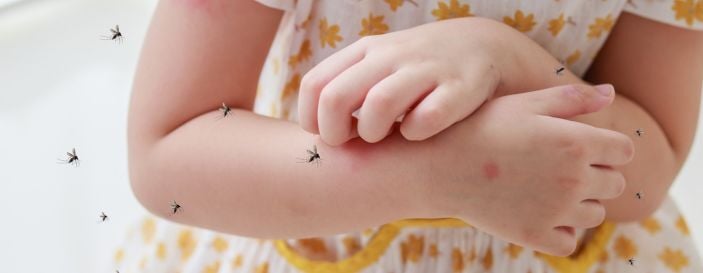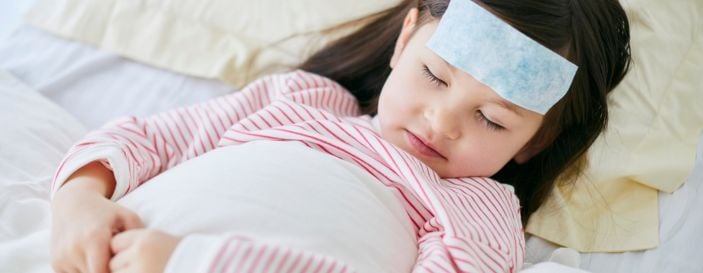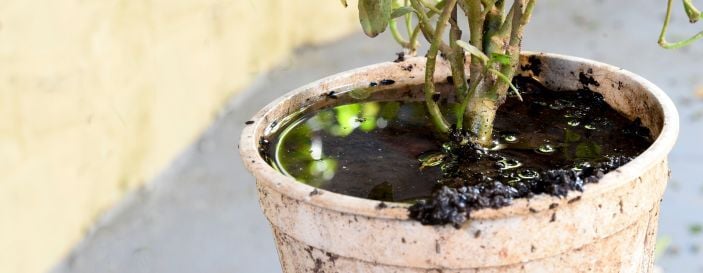With recent news of rising Chikungunya fever cases in mainland China, and confirmed cases have also begun to emerge in Hong Kong, the disease has become a public health issue requiring close monitoring. This mosquito-borne viral disease can cause acute symptoms such as high fever and severe joint pain, along with potential long-term health complications. This guide will walk you through what you need to know to safeguard your family’s health and when to seek professional medical advice.

What is Chikungunya?
Chikungunya is an acute infectious disease caused by the Chikungunya virus (CHIKV), belonging to the Togaviridae family. The name originates from an African word meaning "to bend over," describing the stooped posture of patients suffering from the disease’s characteristic joint pain.
First identified in Tanzania in 1952, the mosquito-borne virus has since spread to Asia, the Americas, and Europe due to climate change and increased global travel. With a recent increase in cases in mainland China and emerging cases in Hong Kong, it’s essential to be informed.
How is Chikungunya Transmitted?
Chikungunya is transmitted through the bites of two primary mosquito species: the Aedes aegypti (Yellow Fever Mosquito) and Aedes albopictus (Asian Tiger Mosquito)—the same vectors responsible for Dengue and Zika viruses. When a mosquito bites an infected person, the virus is replicated inside the mosquito and transmitted to other people through subsequent bites. While human-to-human transmission is rare, an infected mother may pass the virus to her baby during pregnancy.
Recognizing the Symptoms: More Than Just a Fever
After an infected mosquito bite, the incubation period ranges from 2 to 7 days, with common symptoms including:
- Sudden, high fever (up to 40°C)
- Severe and debilitating joint pain and swelling, most commonly affecting wrists, knees, and ankles
- Skin rash
- Muscle pain o headache
- Fatigue or nausea
Some patients may go on to develop chronic arthritis, with symptoms persisting for months or even years. While rare, severe complications and death may occur, particularly in older adults or those with underlying health conditions.

Chikungunya vs. Dengue vs. Zika: Understanding the Difference
The symptoms can be confusingly similar to other mosquito-borne illnesses. Here’s a quick comparison to help tell them apart:

| Feature | Chikungunya | Dengue | Zika |
| Defining Symptom | Severe, debilitating joint pain | High fever, severe headache, potential bleeding | Microcephaly in newborns |
| Joint Pain | Very common and severe | Common, but usually less severe | Microcephaly in newborns |
| Rash | Common | Common | Very common |
| Key Complication | Chronic arthritis | Dengue Hemorrhagic Fever (severe) | Microcephaly in newborns |
Who is at Higher Risk?
Certain groups are more vulnerable to developing severe symptoms or complications from Chikungunya:
- Adults over 65
- Newborns
- Individuals with pre-existing conditions such as diabetes, hypertension, or heart disease
When to See a Doctor
Early diagnosis is key to managing symptoms effectively and ruling out more dangerous conditions like Dengue. You should see a doctor promptly if you develop a sudden high fever and joint pain, especially if you:
- Have recently travelled to an area with known outbreaks.
- Suspect you have been bitten by mosquitoes.
- Belong to a high-risk group.

Diagnosis and Treatment
Diagnosis involves PCR testing or serological antibody tests, and early medical consultation is crucial to rule out other mosquito-borne diseases like Dengue.
There is no specific antiviral treatment for Chikungunya; care focuses on symptom relief:
- Fever and pain management: Use paracetamol (acetaminophen); avoid anti-inflammatory medications unless advised by a healthcare professional
- Adequate hydration
- Joint care: Chronic pain may require physical therapy or anti-inflammatory medication under medical supervision.
Prevention is Your Best Defence: A Practical Checklist
The World Health Organization (WHO) stresses that prevention is the most effective strategy.
- Eliminate Standing Water: Regularly empty water from flower pots, old tyres, and any containers where mosquitoes can breed.
- Secure Your Home: Install or repair window and door screens. Use a mosquito net if necessary.
- Wear Protective Clothing: When outdoors, opt for light-coloured, long-sleeved shirts and trousers.
- Use Effective Repellent: Apply insect repellent containing DEET or Picaridin to exposed skin.
- Avoid Peak Hours: Try to limit outdoor activities at dawn and dusk, when mosquitoes are most active.
By adopting science-backed mosquito control measures and early intervention, we can effectively reduce the threat of outbreaks. While Chikungunya can be concerning, proactive prevention and expert medical care make all the difference.
If you have any questions or are experiencing symptoms, don't hesitate to reach out. If you are in Hong Kong, call 1823 in case of mosquito problems, and visit Mosquito Prevention and Control dedicated page of the FEHD.
